In story—the ones we share and those we have not yet crafted—we live forever. We may be animal, but we are spiritual as well. Alone, we are never alone. In lyric, in epic tale, in stubborn retelling of what happened, or did not happen, but should have happened, or still might—we live past ourselves and those we have lost but can never lose.—Dorothy Allison (April 11, 1949 – November 6, 2024).
I read Bastard Out of Carolina when I was twenty-one years old, the year it came out. It was a thunderstorm in my hands, a novel with so much power it threatened to rise up and take flight. I had never encountered characters like these in literature before even though I had always known them in real life. Dorothy wrote about the people that most Americans never want to have supper with. Rough, tough, hard-working, hard-fighting people caught up in cycles of poverty, sexual abuse, physical abuse, domestic abuse. They are misunderstood, hard-headed, discarded by their own country. She wrote about waitresses and mechanics, men who stood around in the dirt yard kicking the tires, women who worked all day then came home and cooked supper and cleaned house. They smoked and drank and fought and loved. They were like the people I grew up with. My family, my community. But I had never seen them presented so complexly on the page before because lower working class and poor people are usually caricatures in all of our media: film, especially, but literature, too.
The literary world can be monied and snobby. Its elite judge you based on where you went to school (which is most often determined by how much money you were raised with), where and who you are from, and who you know. Many of the writers whose names you know can afford publicists and a whole machine that gets their work read. Most of them (not all) come from money.
Dorothy Allison was one of the first writers I knew of to defy that. She wrote about the way rural, working class people and artists are underestimated and belittled and held back. Most frightening to pearl-clutchers in the worlds of academia and literature, she talked about it in all of its rawness and complexity. The literary world had to accept her because her books sold, because so many readers loved her. But she refused to play the game. She called them out for their snootiness and most of all she remained completely herself. She was brusque, and vulgar, and worst of all to them was that she was always country. They like when that sells books but a whole lot of folks in that world don’t like to be with people like that. Those with money have their own clubs and they don’t like interlopers.
The literary world doesn’t easily welcome in people like Dorothy Allison. So she just broke down the damn door.
You may sense here a bit of anger and resentment from me. And you are right. Because I have always felt out of place in the literary and academic world. I’ve always found them to be snobby places that often make me feel inferior. I can take that; I’m used to it. But what has always miffed me is seeing other writers treated that way. I have overheard people in the publishing world negate and dismiss Dorothy because of their lack of understanding of the way poverty shapes one’s worldview. Because so many of them cannot understand what it is like to not have parents they can count on to give them money if they are ever broke. So many of them cannot understand what it’s like to build a life out of nothing, with no generational wealth, with no home to run to if you find yourself in trouble. Many of them don’t understand what it’s like to have to do the gig because you need to pay the bills, not so you can buy a second (or third) home.
I’ve always been protective of Dorothy. Not because she needed anyone to protect her. She could absolutely take care of herself. But I loved her, and we always want to protect those we love, even if they don’t need it. One time I listened as she read an essay about being abused as a child and I was inconsolable afterwards. I looked at her beautiful, strong hands, but my eye was drawn to her small wrists. I could see her as a child as she stood on that stage, and thinking of her abused was devastating to think on. Afterwards, she hugged me and told me to not cry but I could only think of someone hurting her, and that killed me. I was angry at that man who had done her so much harm. I wanted to go back in time and help her. I’m not sure why it had such an impact on me that night. Perhaps I was just emotionally fragile. But it’s a testament to her words and how effective they were. Because in some way her writing always moved me that deeply.
She was so tough and fierce, yet so vulnerable and tender. I loved all four of those qualities about her but it is her tenderness I hold onto the most.
I witnessed a lot of that in the last year and half after Dorothy’s beloved partner passed away. She was in deep grief at her loss and we often texted about it. Right after Alix passed away I sent a spread of food to her via a food service there where she lived in California. A cake, a chicken pot pie, some vegetables and coffee. All of it came separately, strangely enough, and the person who delivered the chicken pot pie didn’t ring the bell. They left it on her doorstep and sent me a picture of it there. I didn’t see their text right away but when I did, I called and told her to go get it. By the time she got to the door it was gone. Someone had taken it. I wanted her to have a full meal. Since I didn’t live close I wanted to send my love via food, the best way Southerners know how to do that. So I was angry that it had been stolen and voiced that to her but she told me to let it go. “Honey, they probably needed it worse than I do, so it’s where it needs to be.”
She often told me of what she had dreamed at night. Mostly about Alix, but also about the far past. Running the fields of her childhood. Wading in a clean creek. She always had a story for me. She called me “darlin” and “my Double Creek boy” because she liked a poem I had written called “Double Creek Girl”, about a girl who is underestimated because of where and who she is from. A girl a lot like her.
As I write this I start to share so many stories of time with her but then I realize I shouldn’t, that I don’t want to. They were private but also I am being selfish in my grief. I want to keep them for myself. But one more, to give you another look at her.
For years I had worked closely with a well-known literary center that hosts a variety of activities for writers and one year I talked Dorothy into coming to be one of our faculty members, mostly so I’d have a way to spend time with her that would also involve her getting paid. She flew out from California and stayed a couple nights with us, then I drove her to the workshop where we’d spend one night and she’d do her job there. About ten minutes before her session I saw she wasn’t there and feared she had lain down for a nap and failed to wake up. She had been tired the entire trip, worn out from doing several gigs in a row and working round the clock since she was one of the fiction judges for the National Book Award that year. She had brought along an entire suitcase of books she had to read for the judging. I sprinted down the stairs to her room and she opened the door with her bedsheets wrapped around her.
“I’m running late because there were no towels, which I didn’t figure out until I was already in the shower, and there was also no soap or shampoo.” She was laughing, enjoying the story, telling it in a self-deprecating way, as if she were the one at fault. “I rinsed out my hair anyway but then I saw there’s no hair dryer. But I’ll be on time.”
She wasn’t put out at all by this but I was mortified. I had talked this place up and was responsible for her being there and her room had not been readied for her properly. I told her I’d run find some towels and to take her time but she put her hand on my wrist. “These bed sheets dried me off just fine, darlin, so don’t worry about it.” I didn’t mention that her hair was still damp because I knew she would say that was no problem, either. She arrived onstage right on time and gave a talk that is still legendary for people who were in attendance. Basically it was a sermon about the power of the written word, especially in representing those who are often dismissed and negated. At the end of nearly every paragraph she’d shout “Glory!” like the Southern preachers so many of us had grown up hearing. But her exclamation was about art and celebration, not judgment or wrath. All these years later, writers who were there still quote lines from it.
We went home the next day and she stayed the night. We had a great time, eating, laughing, telling stories. She had an early flight the next day, and we had to get up at five in the morning so I could take her to the airport. Later that day I was cleaning the guest bath and realized that I had failed to put out any body wash or shampoo for her there, too. But she hadn’t said a word and when I called her that night and told her how embarrassed I was about we spent a few minutes with nothing on the phone line between us except laughter.
These are little moments I’ll remember. There are many others. We were mostly together at literary gatherings. New Orleans. Chattanooga. Atlanta. Louisville. New York City. And what bound us the most at those was being outsiders together. Being raised in trailers and little bitty houses. Loving pinto beans and salt pork and cornbread. Making it even if we were considered uncouth.
The first time I met her I had been invited to the Fellowship of Southern Writers gathering in Chattanooga to accept an award and she immediately took me under her wing. This was less than ten years after Bastard had blown my mind wide open. She had read my first novel and told me she loved it. I was shaking all over, nervous that one of my heroes was speaking to me, unbelieving that she had actually read my book. Years later I told her that there was no wonder she liked Clay’s Quilt since it was so influenced by Bastard Out of Carolina. Even the beginning of my first novel borrows from hers, with the main characters all crammed into a car in a dangerous situation.
I am rambling in my grief, I know. I am angry in my grief, too. That’s clear here. I have a chip on my shoulder about the way the world, especially the writing world, looks at people who weren’t raised with money. So did Dorothy. She’d be the first to tell you that. The chip wasn’t put there by us, but by the world.
The main thing I want to ask of you is to read Dorothy Allison’s work. Keep her alive by keeping her words alive. Read her novels, Bastard Out of Carolina and Cavedweller, her best known works. But also, the absolutely perfect short book Two of Three Things I Know for Sure where she writes one of the lines that has become a mantra for me: “Two or three things I know for sure, and one is that I'd rather go naked than wear the coat the world has made for me.” Read her short stories collected in Trash, where she takes the power away from that terrible word being applied to human beings by showing the complexity of those who are so readily called that. Read this incredible speech she gave when accepting the Bill Whitehead Award for Lifetime Achievement. Read “This Is Our World”, a foundational essay for me where she writes “I think that using art to provoke uncertainty is what great writing and inspired images do most brilliantly. Art should provoke more questions than answers and, most of all, should make us think about what we rarely want to think about at all.” Watch her on Charlie Rose in 1992. Read her poems, where she luxuriates in the joys of the body and tells the hard truths. She was also interested in that, above all else. “I want hard stories,” she once wrote, in an essay I use in every writing workshop I teach. “I demand them from myself. Hard stories are worth the difficulty. It seems to me the only way I have forgiven anything, understood anything, is through that process of opening up to my own terror and pain and reexamining it, re-creating it in the story, and making it something different, making it meaningful - even if the meaning is only in the act of the telling.”
I love her and I miss her.
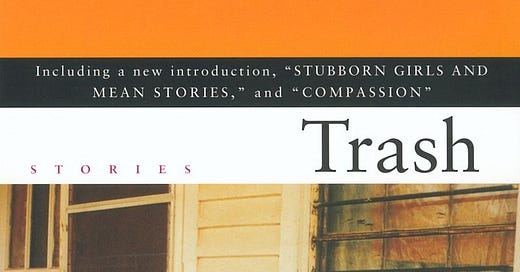


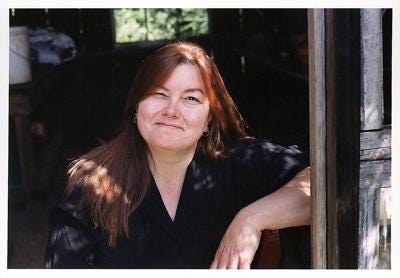
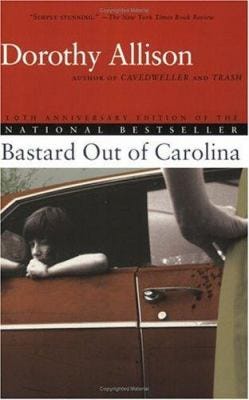

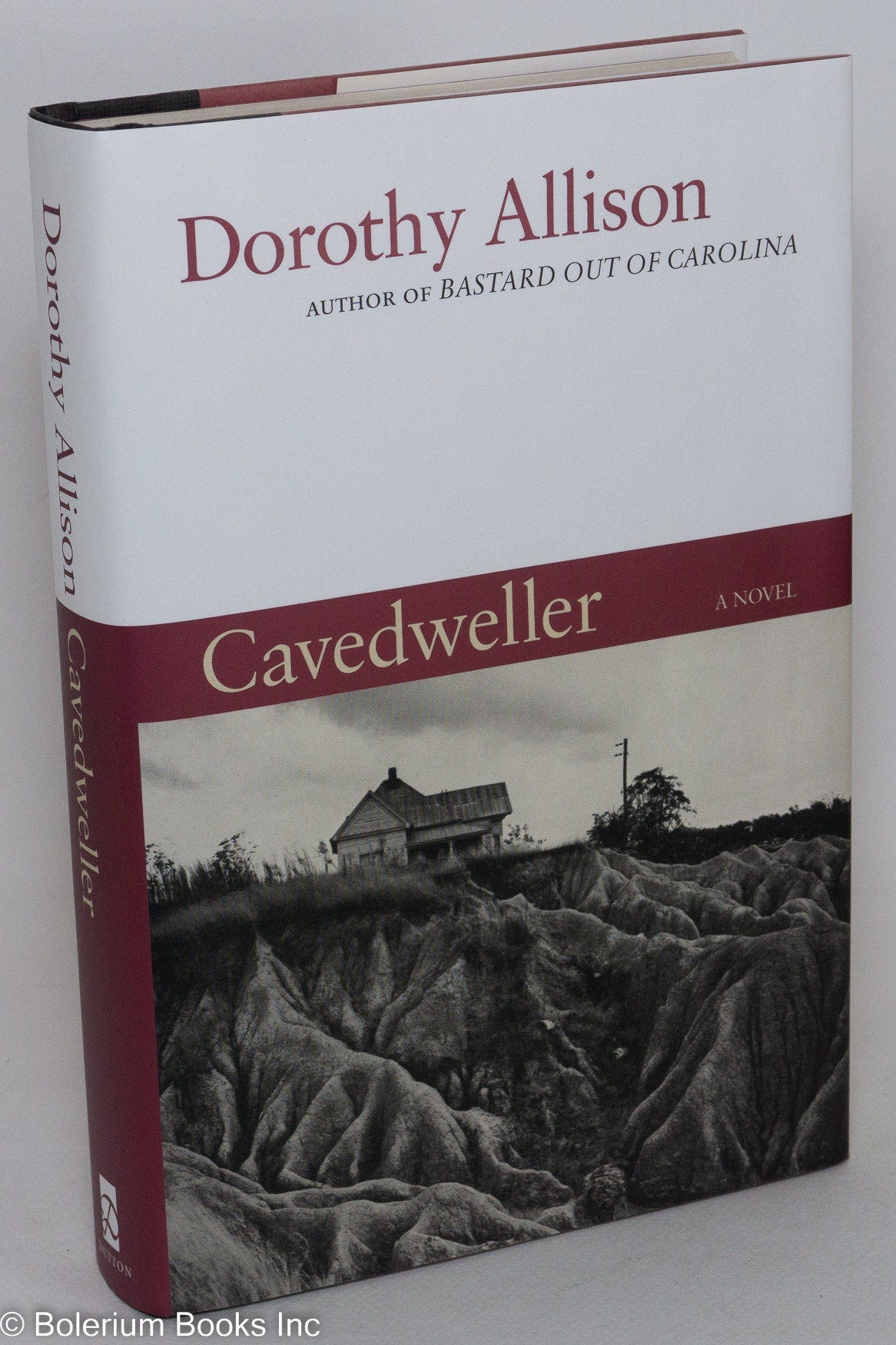
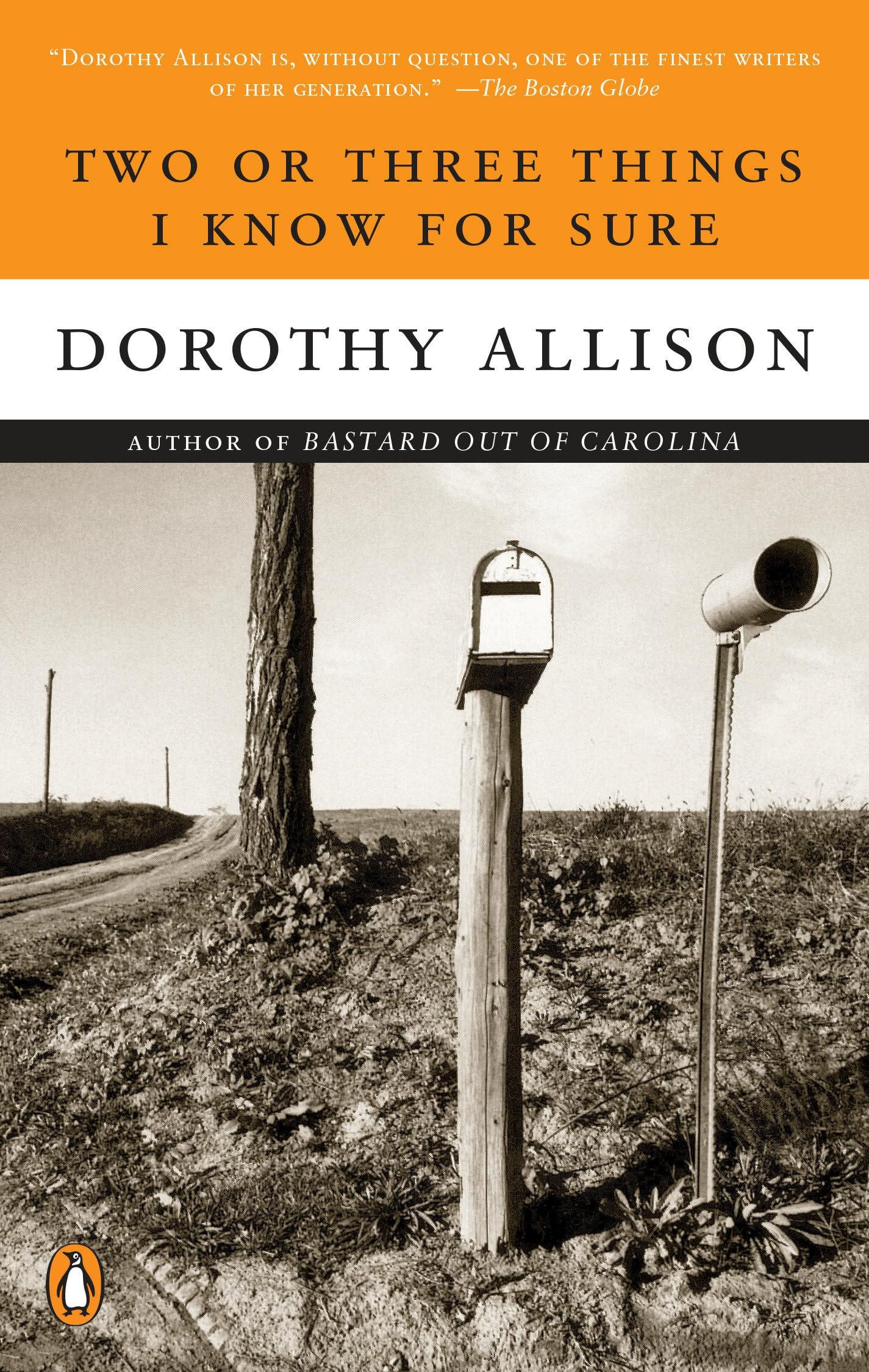
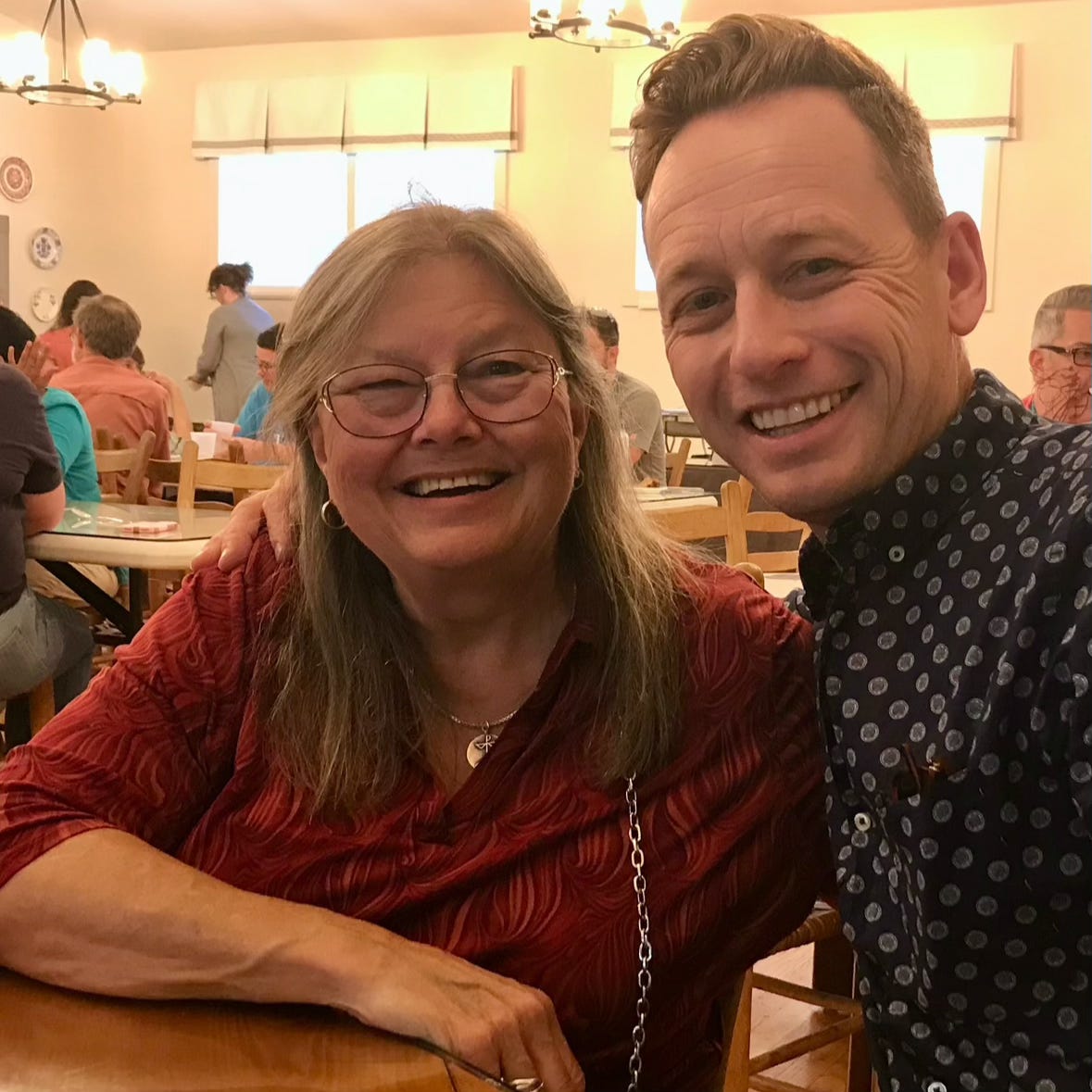
Thank you for introducing me to her. I got to be around her 3 different times and found her to be an unapologetic powerhouse whose warm embracing support made me feel I could do anything. Sorry for your loss of a friend, and for the world of literature’s loss.
Thank you for all these memories. Such love. The beautiful picture of Dorothy in front of the barn, is by our friend, photographer Jill Posener. Xoxox Love